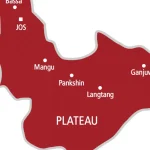Africa is home to some of the world’s largest gold reserves, with several countries each possessing over 100 metric tons of this precious metal. These immense reserves present significant wealth and substantial opportunities for economic development across the continent.
Gold is a valuable asset that can enhance foreign exchange reserves, reduce reliance on foreign debt, attract international investment, and stabilize a nation’s currency. The World Gold Council (WGC) reports a 12% increase in global gold production over the past four years. In 2023, the US Geological Survey estimated production at 3,000 metric tons, generating approximately $38 billion in direct and indirect benefits for host countries. According to Business Insider, here are the top 10 gold-producing countries in Africa:
**Ghana**
Ghana leads Africa in gold production. Historically known as the “Gold Coast,” the country has been mining gold since the 15th century, with the industry now contributing over 40% of its total export earnings.
**Mali**
Gold is Mali’s most important export, accounting for over 80% of total exports in 2023. The Ministry of Mines estimates the country’s gold reserves at 800 tons, alongside substantial deposits of iron ore, uranium, manganese, lithium, and limestone.
**South Africa**
Once responsible for 40% of the world’s gold production in 1975, South Africa now represents just 4.2% of global output. Despite this decline, the gold mining industry, which began in the late 19th century, was pivotal in the development of Johannesburg, known as eGoli or the “City of Gold.”
**Sudan**
Mining contributes about 4% to Sudan’s GDP, with gold being the primary driver of this sector, despite many of the country’s mineral reserves remaining underdeveloped.
**Guinea**
Gold mining is a critical part of Guinea’s economy, with significant production coming from the Siguiri region.
**Tanzania**
Gold mining is essential to Tanzania’s economy, contributing over 4% to its GDP. Major operations, such as the Geita Gold Mine, are among Africa’s largest.
**Côte d’Ivoire**
Ivory Coast saw record gold production in 2023 due to new mines opening and is expected to continue growing. As the world’s leading cocoa producer, the country is working to diversify its income by developing its mining sector.
**Zimbabwe**
Gold mining in Zimbabwe dates back to pre-colonial times, and the sector remains a vital part of the economy. In 2024, Zimbabwe plans to increase its gold production through the introduction of the gold-backed currency, Zimbabwe Gold (ZiG).
**Democratic Republic of the Congo**
The DRC, known for its extensive mineral wealth, including diamonds and copper, is also a major gold producer. Its mineral-rich eastern regions host both large-scale industrial mines and small-scale artisanal operations, despite challenges like conflict and illegal mining.





